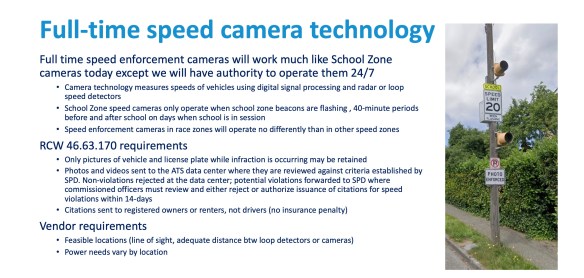Renters insurance is an essential safeguard for anyone leasing a home or apartment, offering protection for personal belongings and liability coverage in case of accidents or damage. With various plans available, selecting the right policy can feel overwhelming. This guide provides an in-depth review of the top renters insurance plans, helping you make an informed decision. We’ll evaluate key factors such as coverage options, premium costs, customer service, and additional benefits. Whether you’re a first-time renter or looking to switch providers, this comprehensive review will help you find the best plan to fit your needs and budget.
Explore this topic with indog.xyz in great detail.
1. Introduction to Renters Insurance
Renters insurance is a type of policy designed specifically for individuals who rent their homes, whether it’s an apartment, condo, or house. Unlike homeowners insurance, which covers the structure of the property, renters insurance focuses on protecting your personal belongings within the rented space. This means that if your possessions are damaged or stolen due to events like fire, theft, or vandalism, your renters insurance will help cover the cost of replacement or repair.
Additionally, renters insurance often includes liability coverage, which protects you in case someone is injured in your home or if you accidentally cause damage to someone else’s property. It’s an affordable and practical way to safeguard yourself financially from unexpected events that could otherwise lead to significant out-of-pocket expenses. With the increasing number of renters today, having a comprehensive renters insurance policy has become an essential aspect of financial security for millions of individuals and families alike.

2. Importance of Renters Insurance
Renters insurance is crucial for anyone living in a rented property, offering peace of mind and financial protection against unforeseen events. Unlike homeowners insurance, which covers the structure of the property, renters insurance focuses on safeguarding your personal belongings within the rented space. Without this coverage, you could face substantial out-of-pocket expenses if your possessions are damaged or stolen due to incidents like fire, theft, or water leaks.
Additionally, renters insurance includes liability coverage, which is vital for protecting yourself if someone is injured in your home or if you accidentally cause damage to another person’s property. This aspect of the policy helps cover legal fees and medical expenses, reducing your financial burden during a stressful situation. Furthermore, many renters insurance policies offer additional benefits, such as temporary living expenses if your rental becomes uninhabitable. In summary, renters insurance provides essential protection, ensuring that you are not left financially vulnerable in the event of unexpected losses or liabilities.

3. Criteria for Evaluating Renters Insurance Plans
When evaluating renters insurance plans, several key criteria should be considered to ensure you select the best policy for your needs.
Firstly, coverage options are crucial. Review what types of damages and losses are covered, including fire, theft, vandalism, and water damage. Ensure the policy provides adequate protection for your personal belongings and any specific needs you might have, such as coverage for high-value items.
Secondly, consider the premium costs and deductibles. Compare the monthly or annual premiums and check if they align with your budget. Also, understand the deductible amounts and how they impact your potential out-of-pocket expenses.
Customer service and the claim process are also important. Research the insurer’s reputation for customer support and the ease of filing a claim. Look for reviews or ratings related to their responsiveness and efficiency.
Finally, examine any additional benefits and discounts offered. Some policies may include perks like temporary housing coverage or discounts for bundling with other insurance types. Assessing these factors will help you find a comprehensive and cost-effective renters insurance plan.

4. Top Renters Insurance Companies Overview
When exploring top renters insurance companies, it’s essential to evaluate their offerings to find a plan that meets your needs. Here’s an overview of some leading insurers:
State Farm is renowned for its comprehensive coverage and exceptional customer service. Their renters insurance policies offer protection for personal property, liability coverage, and additional living expenses. State Farm also provides various discounts, including those for bundling with auto insurance.
Geico is known for its competitive pricing and straightforward policies. Geico’s renters insurance includes coverage for personal belongings, liability, and additional living expenses, with several options for customization based on individual needs.
Allstate offers extensive coverage options and a range of discounts. Their policies include protection for personal property, liability, and living expenses, along with add-ons like identity theft protection.
Progressive provides flexible renters insurance with a focus on affordability. Their policies cover personal property, liability, and additional living expenses, and they offer discounts for bundling and maintaining a claim-free record.
Each of these companies provides strong coverage options and various benefits,
5. Detailed Review of Coverage Options
When choosing a renters insurance policy, it’s important to understand the detailed coverage options available to ensure you select the right plan for your needs. Here’s a closer look at typical coverage components:
Personal Property Coverage: This protects your belongings from damage or loss due to covered perils such as fire, theft, or vandalism. It usually includes coverage for items like furniture, electronics, and clothing. Check the policy limits to ensure they align with the value of your possessions.
Liability Coverage: This component covers legal expenses and damages if you are found responsible for injuring someone or causing damage to someone else’s property. It’s crucial for safeguarding yourself from potentially costly lawsuits and claims.
Additional Living Expenses (ALE): If your rental becomes uninhabitable due to a covered event, ALE helps cover temporary housing costs and other related expenses. This is essential for maintaining your living standards while repairs are made.
Medical Payments Coverage: This provides coverage for medical expenses if a guest is injured in your home, regardless of who is at fault. It can help cover minor medical costs without the need for a liability claim.
Optional Add-Ons: Some policies offer additional coverage options such as identity theft protection, coverage for high-value items (e.g., jewelry or collectibles), and earthquake or flood insurance. Evaluate these add-ons based on your specific needs and risks.
Understanding these coverage options will help you choose a renters insurance policy that offers comprehensive protection tailored to your personal situation.
6. Comparison of Premium Costs
When comparing renters insurance premiums, several factors influence the cost, making it essential to assess each policy carefully. Premiums can vary widely based on the insurer, coverage limits, and your location. Typically, the cost of renters insurance is influenced by:
Coverage Limits: Higher coverage limits for personal property and liability will generally increase your premium. Assess how much coverage you need and find a balance between adequate protection and affordability.
Deductibles: Policies with higher deductibles usually have lower premiums. Consider your ability to cover the deductible in case of a claim when choosing a policy.
Location: Your geographic location can impact premiums due to varying risks such as theft rates, natural disasters, and local building costs.
Discounts: Many insurers offer discounts for bundling renters insurance with auto insurance, having security systems in place, or maintaining a claim-free record.
Comparing these factors across different insurance providers will help you find a policy that offers the best value for your needs and budget.
7. Customer Service and Claim Process Evaluation
Evaluating customer service and the claims process is crucial when selecting a renters insurance provider. Here’s what to consider:
Customer Service: Research the insurer’s reputation for customer support. Look for reviews or ratings related to their responsiveness, professionalism, and overall service quality. A provider with strong customer service can make handling policy inquiries and issues much smoother.
Claim Process: Assess the ease of filing a claim with the insurer. A streamlined, user-friendly process is essential for a stress-free experience. Check if claims can be filed online, via mobile app, or by phone, and how quickly the insurer processes and resolves claims.
Claims Handling: Look into the insurer’s track record for fair and timely claims settlement. Research how often claims are denied or contested and the typical time frame for resolving claims.
Choosing a provider with excellent customer service and a straightforward claims process will ensure you receive the support and assistance you need when it matters most.
8. Additional Benefits and Discounts
When evaluating renters insurance policies, it’s important to consider additional benefits and discounts that can enhance the value of your coverage. Many insurers offer extra features that go beyond standard protection:
Additional Benefits: Look for policies that include perks such as identity theft protection, which can help mitigate the effects of personal data breaches. Some plans also offer coverage for high-value items like jewelry or collectibles, which might otherwise require separate insurance.
Discounts: Insurers often provide various discounts to reduce your premium. Common discounts include those for bundling renters insurance with auto or other types of insurance, installing security systems, or having a claim-free history.
Loyalty Programs: Some companies offer discounts or benefits for long-term policyholders or for renewing your policy with them.
Evaluating these additional benefits and discounts can help you find a renters insurance plan that provides both comprehensive coverage and cost savings.
9. Pros and Cons of Each Insurance Plan
When assessing renters insurance plans, it’s essential to weigh the pros and cons of each to find the best fit for your needs.
State Farm offers robust coverage options and excellent customer service. Pros include a wide range of coverage and discounts for bundling. However, their premiums might be higher compared to some competitors.
Geico is known for its competitive pricing and straightforward policies. The pros include affordability and easy policy management. On the downside, coverage options may be less extensive, and customer service ratings can vary.
Allstate provides comprehensive coverage and additional benefits like identity theft protection. Their pros include numerous discounts and strong policy options. The cons may include higher premiums and mixed reviews on claims handling.
Progressive offers flexibility and cost-effective coverage. Pros include lower premiums and customizable plans. However, the cons can involve fewer coverage options and potentially less extensive customer support.
Each insurance provider has its strengths and weaknesses. Evaluating these pros and cons will help you select a renters insurance plan that best aligns with your needs and preferences.
10. Final Recommendations and Best Picks
After reviewing the top renters insurance companies and their offerings, here are the final recommendations and best picks to help you make an informed decision:
State Farm is ideal for those who value extensive coverage options and exceptional customer service. Their range of discounts, including bundling with auto insurance, can make them a great choice if you are willing to pay slightly higher premiums for comprehensive protection.
Geico stands out for its affordability and simplicity. If keeping costs low is your primary concern, Geico offers competitive premiums and a straightforward policy, although coverage options might be more limited.
Allstate is a strong contender for those seeking extensive benefits and additional coverage options, such as identity theft protection. Their discounts and comprehensive plans make them a solid choice, despite potentially higher premiums and mixed reviews on claims processing.
Progressive is recommended for its flexibility and cost-effectiveness. Their customizable plans and lower premiums are advantageous, but you might find fewer coverage options and less robust customer support.
Ultimately, the best choice depends on your specific needs and priorities. Consider the balance of coverage, cost, and customer service that aligns with your personal situation to select the renters insurance plan that offers the best overall value.
Choosing the right renters insurance is crucial for protecting your personal belongings and ensuring financial security. By evaluating coverage options, comparing premiums, and considering customer service and additional benefits, you can make an informed decision. Whether you prioritize comprehensive protection, affordability, or additional perks, understanding the strengths and weaknesses of top insurers will help you find the best plan for your needs. Invest in the right renters insurance to safeguard your home and enjoy peace of mind.
indog.xyz
